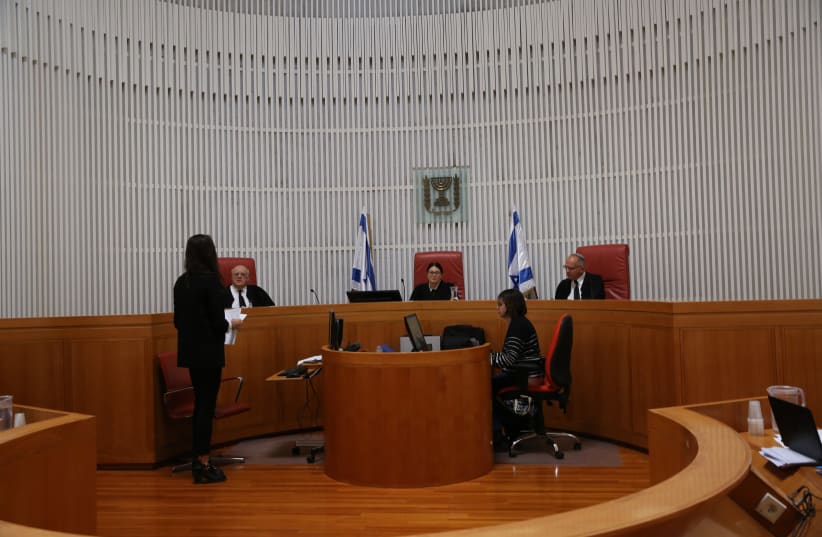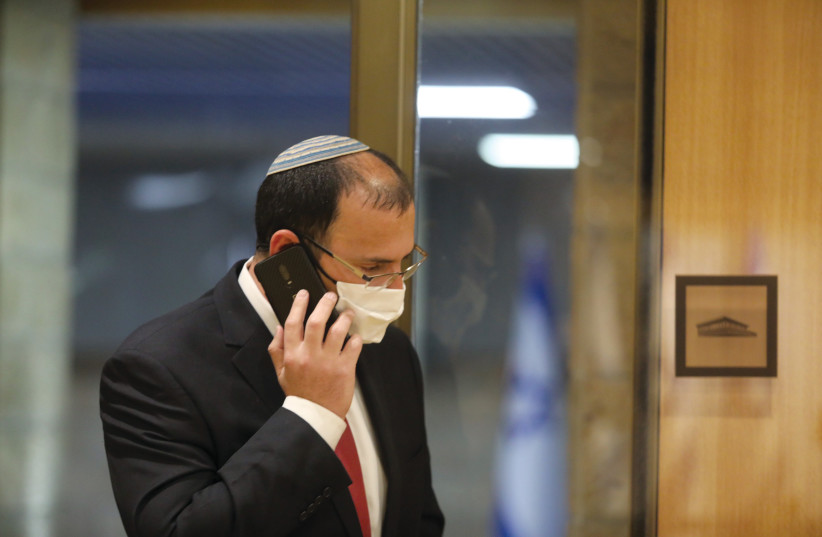The Adalah NGO petitioned the High Court of Justice on Sunday to strike down the family reunification law passed last week as unconstitutional, regarding its purposes of tightening immigration controls and making it harder for Palestinians who marry Israeli Arabs to receive citizenship.
The "legal center for Arab minority rights in Israel" told the High Court that even if similar laws have been on the books in Israel for decades, this version of the law was different.
According to Adalah, the latest version of the law is different because it dropped the “pretense” of being about security, saying that part of its purpose in limiting Palestinian-Israeli-Arab marriages was to maintain Israel’s character as a Jewish and democratic state.
The NGO said that taking into account ethnicity as a basis of interfering with marriage and citizenship issues has been rejected since World War II, even by apartheid South Africa in 1980.
New Hope MK Zvi Hauser and Religious Zionist MK Simcha Rothman were responsible for adding the clause regarding a Jewish and democratic state, in addition to the standard reference to security considerations.
The Shin Bet (Israel Security Agency) had campaigned hard for the law purely based on security considerations, saying that sometimes Hamas and other groups could use marriage as a way to sneak their agents into Israel as new citizens.
However, the new clause could leave the High Court in a complex dilemma.
Although Israel’s status as a Jewish and democratic state is strongly enshrined in the Declaration of Independence, the Jewish Nation-State Law and others provisions, injecting it specifically into the issue of family reunification could cause legal headaches.
In addition, the number of family reunifications to date has been so low that it may be hard to argue that the volume could have any serious demographic impact.
If the justices find the new clause troubling, they could strike the entire law, or they could choose one of several easier ways out of the dilemma.
The justices could say they can ignore the clause because it has no operative or functional impact and is more of a vague philosophical declaration.
Alternatively, they could Jjust strike the clause about the "Jewish and democratic state" purpose, while preserving the law based on the security considerations purpose which has always been part of it.
Passing the law itself was the culmination of a nine-month legislative saga when right-wing coalition and opposition parties had a rare moment of joining together to accomplish it.
Back in July, a similar bill was defeated by one vote due to a last-minute rebellion by MK Amichai Chikli. Interior Minister Ayelet Shaked has repeatedly tried to pass it ever since.
The new law, sponsored by Rothman, applies to Israelis of any nationality who marry any foreign resident. The foreign spouse will not receive citizenship automatically.
The bill was strongly opposed by Meretz and the Arab parties, including Ra’am from within the coalition.
Gil Hoffman contributed to this report.

